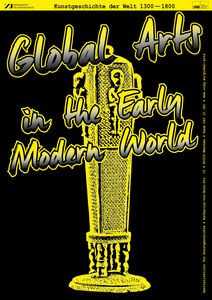Vortrag Gauvin Alexander Bailey
Termindetails
Wann
von 18:15 bis 20:00
Art
Wo
Architecture in the French Atlantic World, 1608-1828: Utopianism and Intransigence in a Paper Empire.
Although the architecture of Spanish and Portuguese America today comprises one of the most flourishing subjects in the art-historical discipline the same cannot be said for that of the French Atlantic Empire, which astonishingly—except for regional scholarship on Quebec and a handful of studies of buildings in Louisiana—does not exist as a field. This talk will provide a brief overview of the architectural heritage of the French Atlantic Empire (including the rich collection of plans and drawings in the archives in Aix-en-Provence and elsewhere) and will contextualize French America within the history of Latin American architecture, examining how differing ideologies and utopianisms among the French and Iberian empires led to strikingly contrasting architectural cultures despite shared histories of conquest, settlement, conversion, and forced labour. This paper will encompass North America, the French Antilles, French Guyana, and also Senegal.
This paper will consider French Atlantic architecture as a product of a uniquely French ideology of cultural uniformity, an intellectual construct of preordained, centralized, and circumscribed national territory developed under Louis XIV (1661-1715) and known as the pré carré. It resulted in a stubborn vision of unity in the face of geographical or demographic diversity, and in a reluctance to engage culturally with non-Europeans, including indigenous peoples and the rapidly growing populations of slaves and gens de couleur. Settlements such as Quebec were intentionally founded outside Native American territory and—in striking contrast to the Spanish practice of using Amerindian labour—even missionaries brought lay French architects and builders (donnés) with them. The architecture of the French Atlantic Empire was profoundly different from the awkward but functional balance of utopianism and pragmatism that allowed acculturative, hybrid architectural styles to flourish in Spanish America.
Prof. Gauvin Alexander Bailey
Gauvin Alexander Bailey is Professor and Alfred and Isabel Bader Chair in Southern Baroque Art at Queen’s University. He has held fellowships with the John Simon Guggenheim Foundation and the Harvard University Center for Italian Renaissance Studies at Villa I Tatti, and in 2014 was elected correspondent étranger of the Académie des Inscriptions et Belles Lettres at the Institut de France. He has published seven books, co-authored or edited seven more, and written over 70 articles.

